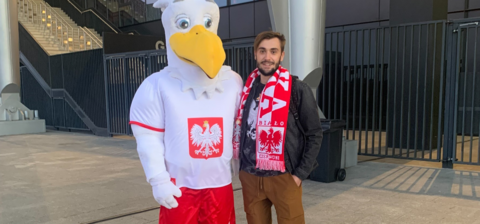
Pharmacy beyond borders: hospital practice in Poland
Jacob Luba isn’t the type of person who backs down from a challenge.
Practicing pharmacy in another country? In another language? During a global pandemic? None of these concerns stopped him from being one of the first Waterloo Pharmacy students to participate in the Student Exchange Program (SEP) organized by the International Pharmaceutical Students’ Federation (IPSF).
In August 2021, third-year student Jacob travelled to Poland, a country now forever changed by Russia’s invasion in Ukraine, for over two weeks. He worked in a hospital in Warsaw, the country’s capital, and lived in student dorms in a local university where he got to meet other health care learners.
“I’ve always pushed myself,” Jacob says. “I wanted to see how far I could take the skills I’ve developed, and practicing pharmacy abroad seemed like a perfect opportunity to learn from people who have different backgrounds from mine.”
Jacob is no stranger to moving for work. He’s done one co-op term in Thunder Bay and hoped to do more travelling throughout his pharmacy education when COVID-19 struck. But as guidelines around travel changed, Jacob realized he’d be able fit in an exchange term after all at the end of his 3A term and before his final co-op.
“Applying for the exchange during COVID was very stressful,” he says. “There was lots of uncertainty, but ultimately it came down to doing your research, checking Canada’s website and the sites for the country where you’re travelling to ensure you understand any travel or quarantining requirements.”
The Student Exchange Program is organized by the IPSF, a part of the Canadian Society for Pharmacy Students and Interns (CAPSI). To apply for exchanges, students must be CAPSI members. Jacob applied in December 2020, and worked with SEP organizers, checking in every month between when his application was accepted and when he went on his exchange.
Applicants to the program identify three countries they’d like to visit, and if their application is successful, they are matched with one of those. Poland was Jacob’s top choice.
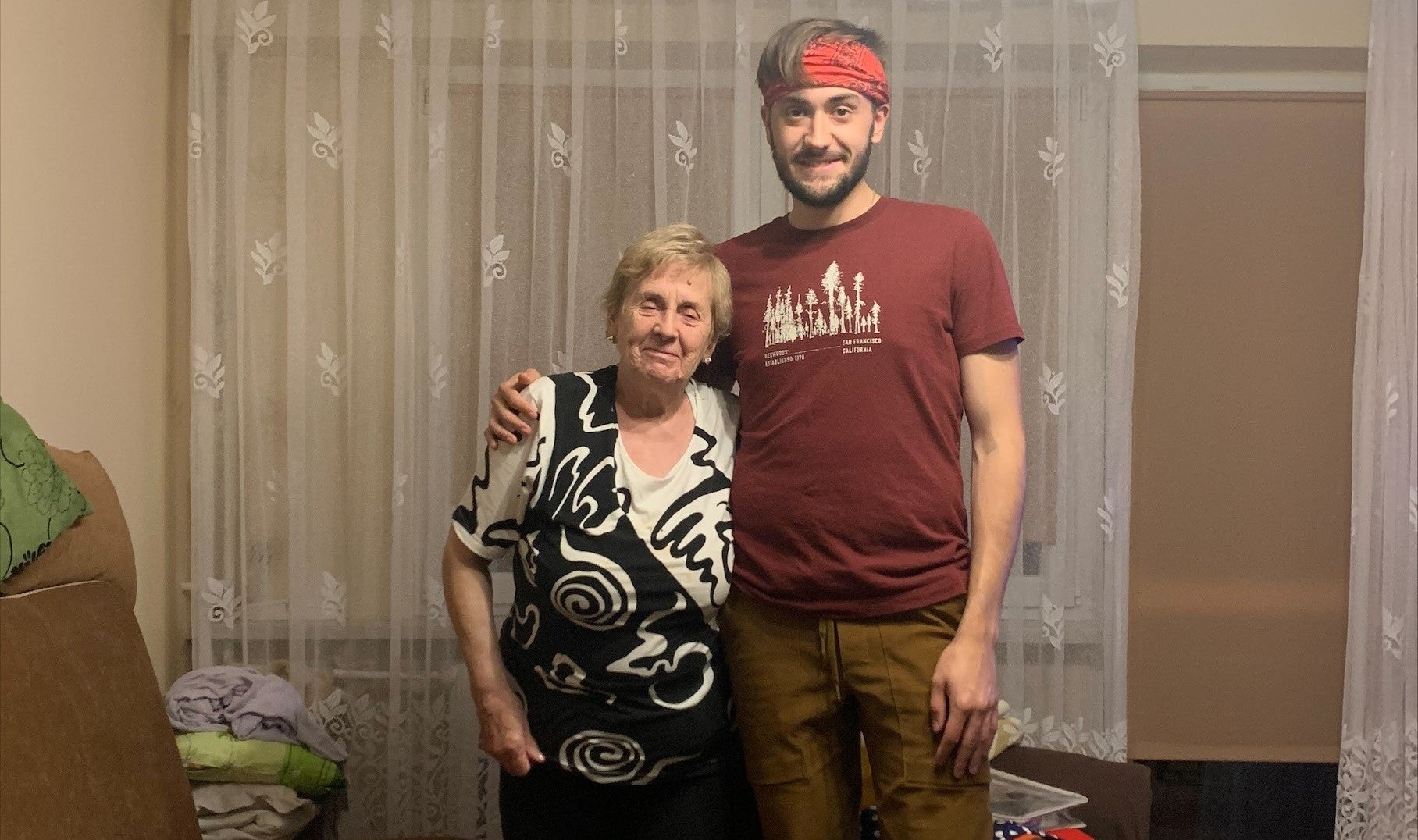
Jacob and a family member
“I chose Poland because of my heritage,” he says. “My parents were born there, and we have lots of family living there as well. I was also interested in how pharmacy has been changing rapidly in Eastern Europe over the last few years and wanted to explore how institutional practice differed in that part of the world.”
Jacob started each workday with a bus ride from his university dorm to the hospital. In the mornings, he supported the hospital with technical tasks like drug distribution and organizing orders for various units. In the afternoons, he shadowed pharmacists with various specialties such as parenteral nutrition, sterile compounding, oncology and more.
For Jacob, who has institutional Canadian experience as well, the experience was eye-opening.
“In Poland, hospital pharmacists are still very involved in niche roles like sterile compounding and provide less direct patient care,” he says. “I had a chance to speak to the Director of Pharmacy at the hospital, and she had read widely about the advancement of the profession in Canada, the UK and Australia. It made me grateful to have learned pharmacy in a country where a pharmacist’s role has expanded so much.”
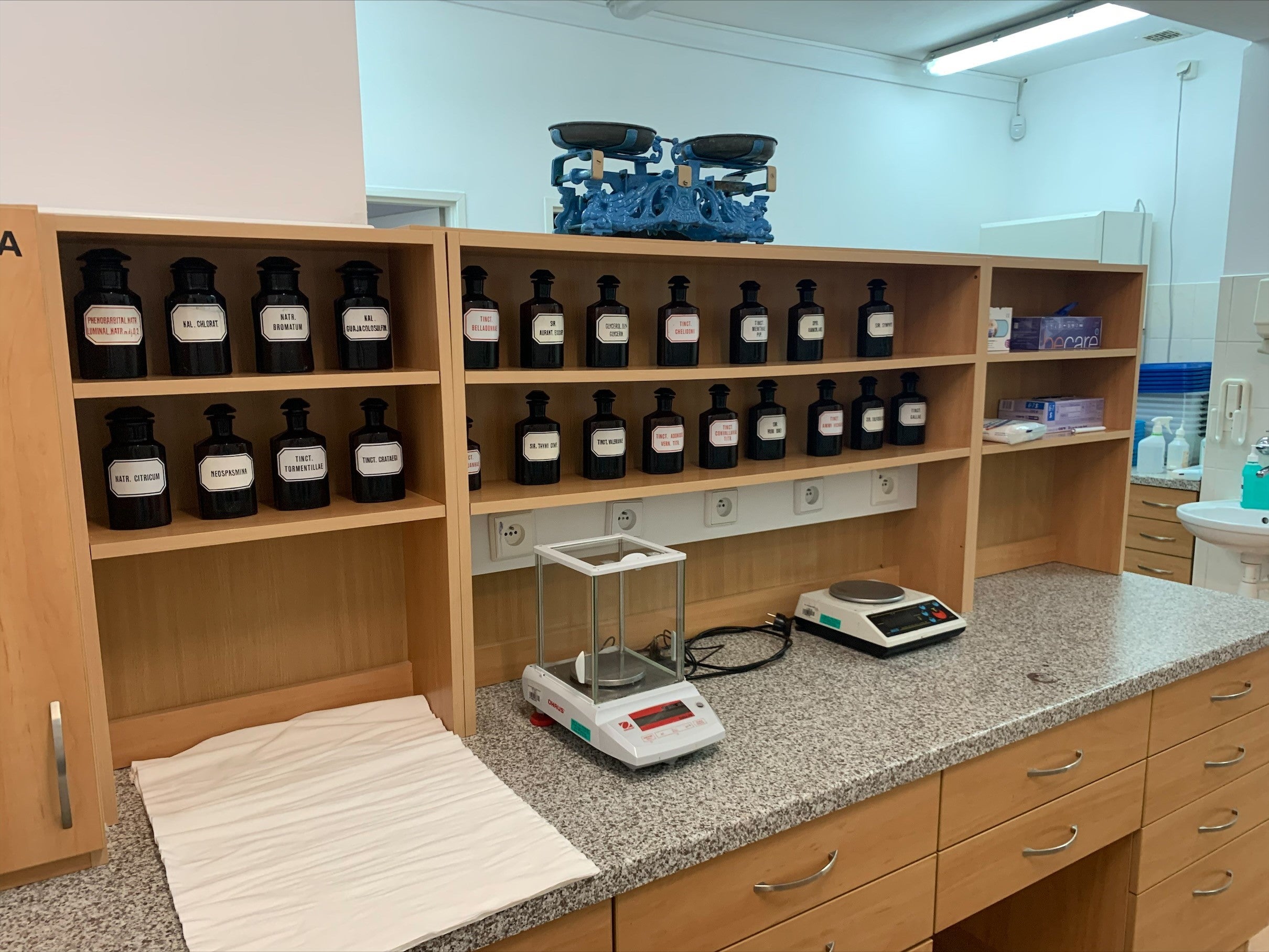
Compounding space in the hospital
Collaborating with the pharmacists, particularly in the oncology department, was exciting for Jacob.
“I could see myself in a similar role – there was always something new to learn and each day was different,” he says.
In his spare time, he made sure to visit with family and explore the city. He tried new foods, made friends with fellow students, and visited local attractions like the Warsaw Uprising Museum.
“Warsaw had been torn down twice within a hundred years,” he says. “It was so inspiring to see how the city had been rebuilt and to feel the spirit of the people who lived there.”
The exchange was also an opportunity for him to practice his Polish.
“Though I grew up speaking it, I’d never used Polish in a medical context,” he said. “It was nerve-wracking, but everyone was patient with me and impressed by my willingness to show I was trying and making mistakes. Over time my confidence grew, and I even helped colleagues practice their English.”
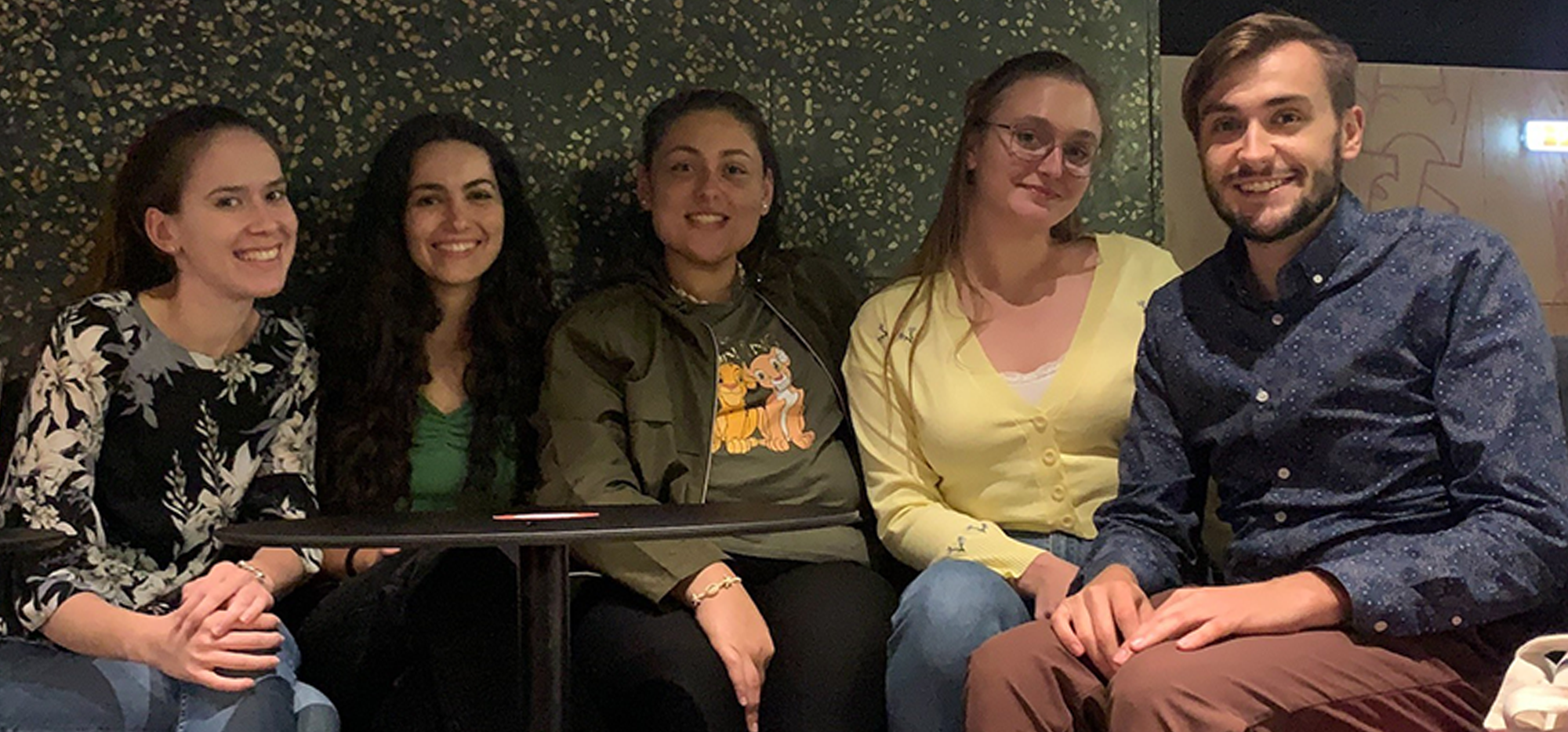
Jacob with fellow students
For students who are considering an exchange, Jacob says to start your planning early and to do your research on where you want to go and what travel restrictions might apply.
“Think about what areas of practice you want to focus on and where you want to go,” he says. “And be prepared to take risks. Don’t be afraid to put yourself in an area that’s new to you.”
He also recommends getting in touch with the program organizers at SEP and Anthony Miller at Waterloo Pharmacy; both can provide more guidance. The experience certainly has it challenges, but for Jacob, it was worth it.
“The global connectedness I felt on exchange was reaffirming,” he says. “Working with the pharmacists in Poland, knowing we were trained in totally different countries, it was incredible to see that we still had that shared sense of motivation and ideas to advance practice. The experience made me proud of where my career began.”
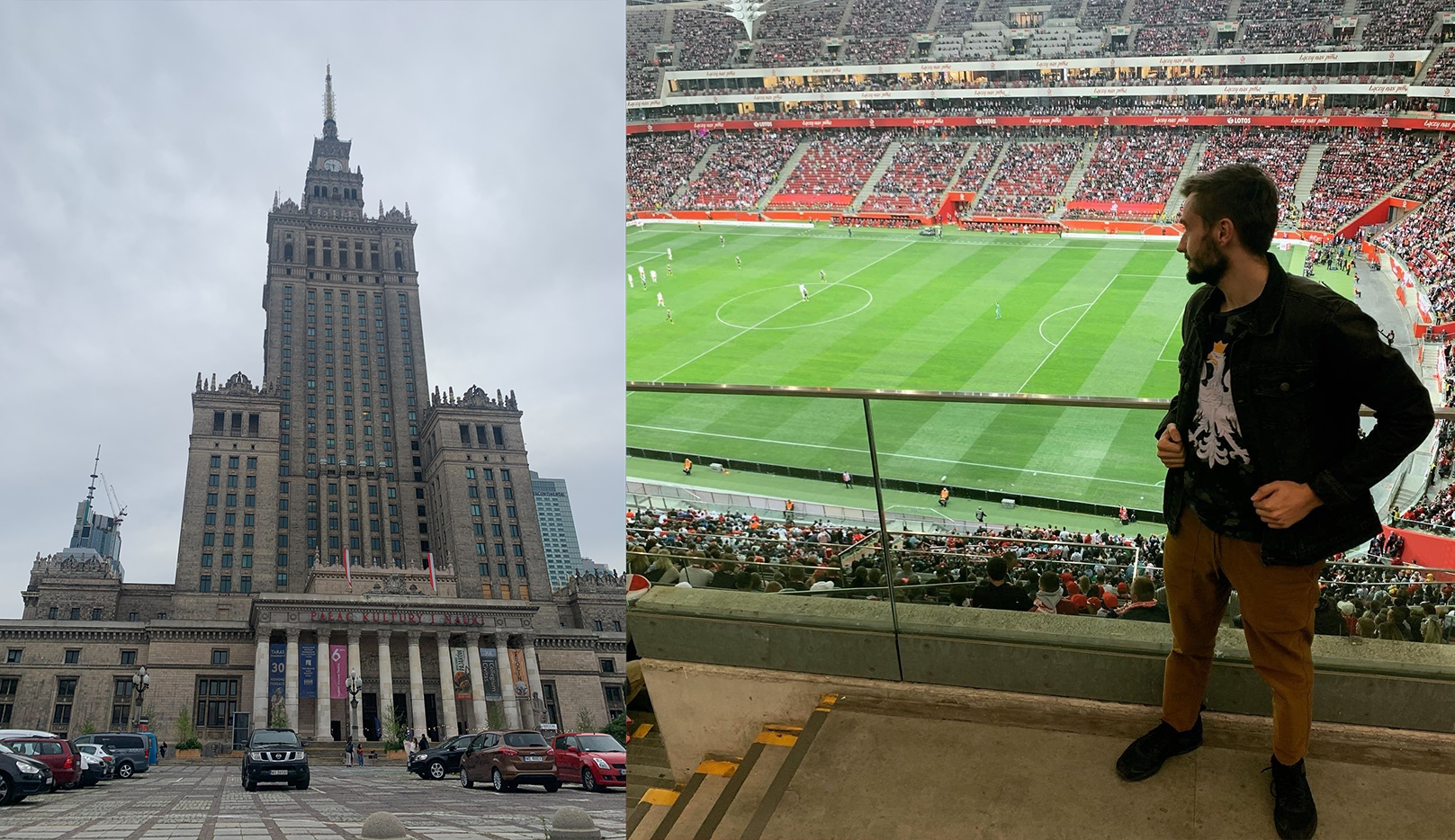
Left: the Palace of Culture and Science in Warsaw. Right: Jacob at Stadion Narodowy, the home stadium of Poland's national football team.